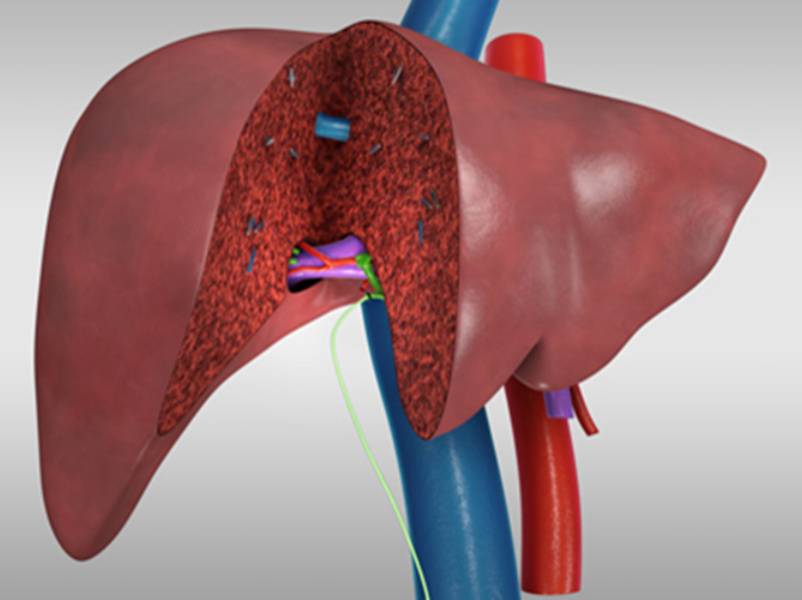What is Living Donor Liver Transplant?
Living donor liver transplantation is a procedure in which a healthy, living person donates a portion of his or her liver to another person. These transplants are possible because of the liver’s unique ability to regenerate or regrow. By identifying a living donor, patients with end-stage liver disease can receive a life-saving transplant much sooner than if they waited for a deceased-donor liver to become available. Dr. Manoj Dongare performs the best living donor liver transplant surgery in Pune. He is the best liver transplant surgeon in Pune.

Who Can Receive a Living-Donor Liver Transplant?
Any patient who is on the liver transplant waiting list is eligible to be considered to receive a liver from a live donor.
Who Can Donate a Liver?
The decision to donate must be voluntary and free from all coercion and financial compensation. Donors may withdraw from the evaluation process at any time without any repercussions. A person’s decision to opt-out of donating a portion of his or her liver for any reason is private and kept confidential.
A healthy donor must:
- Have a compatible blood type with the recipient
- Be between the ages of 18 and 55
- Be in good physical and mental health
- Have an emotional relationship with the recipient
- Have a BMI of less than 30
What is the Procedure of living donor liver transplantation?
In living liver donor surgery, the donor and the recipient are placed in side-by-side operating rooms. A surgeon removes a part of the donor’s liver, typically the right half in adults (in children’s left lobe). The Recipients’ liver is then removed and then the donated segment of the liver is then immediately placed in the recipient in the next operating room. This donated segment of the liver is then immediately placed in the recipient in the next operating room. The remaining part of the donor’s liver is sufficient to maintain normal body functions. The recipient also receives a large enough segment of the donor’s liver to maintain body functions. During approximately the next two months, the remaining and transplanted parts of the donor’s liver grow to normal size, providing normal long-term liver function for the donor and the recipient.
What are the benefits?
There are many benefits of receiving a liver from a living donor:
For the Recipient
- Significantly shorter time on the national waiting list.
- The ability to be transplanted before one gets critically ill. Your preserved strength at the time of transplant will make your recovery easier and faster.
- The liver from the living donor is of excellent quality.
- The surgery can be scheduled electively, allowing the donor and recipient more time to prepare for surgery.
- The patient survivals are equal to, or better than, the outcomes experienced in deceased donor transplants.
For the Living Donor
- Life-saving act for your loved one: the vast majority of liver donors share that they would make the same decision to donate after experiencing the entire donation journey.
- Helping a stranger: the gift of transplant that the living donor provides to their intended recipient helps with the overall liver organ scarcity. In this way, being able to transplant one recipient with a living liver donor will ultimately allow another patient on the deceased donor’s liver waiting list to get a transplant, too.
What are the Major Risks of Donating?
Most donors recover fully after the operation and can do normal activities within a few months after the surgery. However, as with any major surgery, there are risks.
A donor may develop some problems during or right after the operation. They might also experience problems months or years later.
Removing more than half of the liver is a major operation that has some risks. Some of the risks involve specific problems that can occur in and around the liver after surgery. These problems include bleeding, infection, bile leaks, or damage to the bile tree (the ducts that run through the liver). There is a 0.5% risk of death in this operation.
How Long Will a Full Recovery Take?
For the most part, it takes about four weeks to recover from surgery. For a month after leaving the hospital, you will go to the clinic for frequent check-ups. Most people get back to work within eight to 10 weeks, but this differs from person to person. The medical staff will say when it is safe to return to normal life. Federal employees can get a special leave for being organ donors. Other employers have similar programs, so check with your boss to see if your company offers special leave.
Book an Appointment:
Dr. Manoj Dongare at Dr. D. Y. Patil Hospital and Research Center provides one of the best Liver treatment and transplant services in Pimpri Chinchwad and Pune. For more information about our comprehensive treatment options, or to request an appointment with one of the best Surgical Liver Transplant and HPB Surgeon in Pune call 09881379573 or Click on Book Appointment for online booking with your near hospital.
